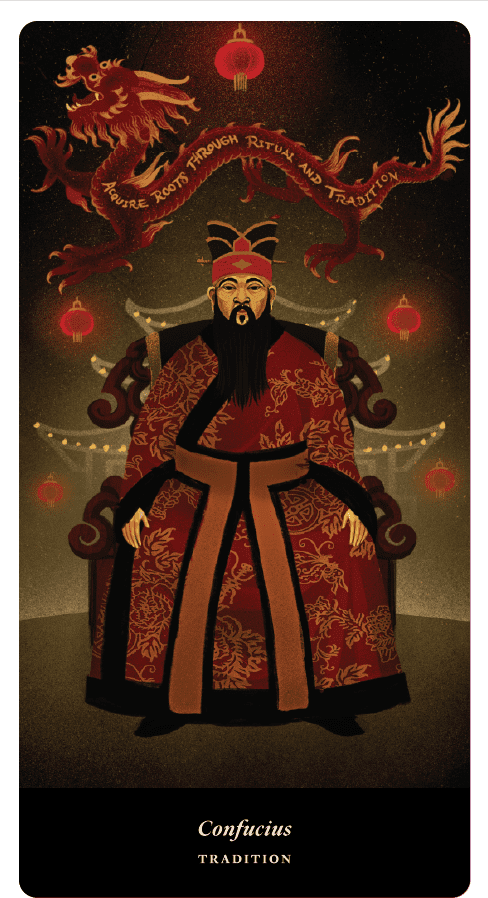Confucius | Acquire Roots Through Ritual and Tradition 551 BCE CHINA 449 BCE CHINA
Kongzi is a philosopher of tradition. He is also popularly known by his Latinized name, Confucius. He teaches us that ritual and tradition bestow us with roots. These roots allow us to flourish and to understand ourselves and our places within the world. For Confucius, there are no random facts about our lives. Everything is determined by fate, which reflects a grand universal order that is both necessary and good. The time and place of our births, the families into which we are born, and the historical contexts within which we find ourselves all have cosmic and moral meaning for Confucius. He disagrees with thinkers who discard these things as not having been chosen, and who promote self-fashioning based on whim and fancy. For Confucius, life is not a matter of creating or discovering meaning but of understanding our roles within the nexus of traditions and rituals belonging to our communities. By understanding ourselves within a tradition—as part of a family, a culture, and ultimately humanity—we avoid the pitfalls of anxiety and isolation that come with creating a self out of nothing. As Confucius says, “Someone who is broadly learned with regard to culture, and whose conduct is restrained by the rites, can be counted upon to not go astray.”

